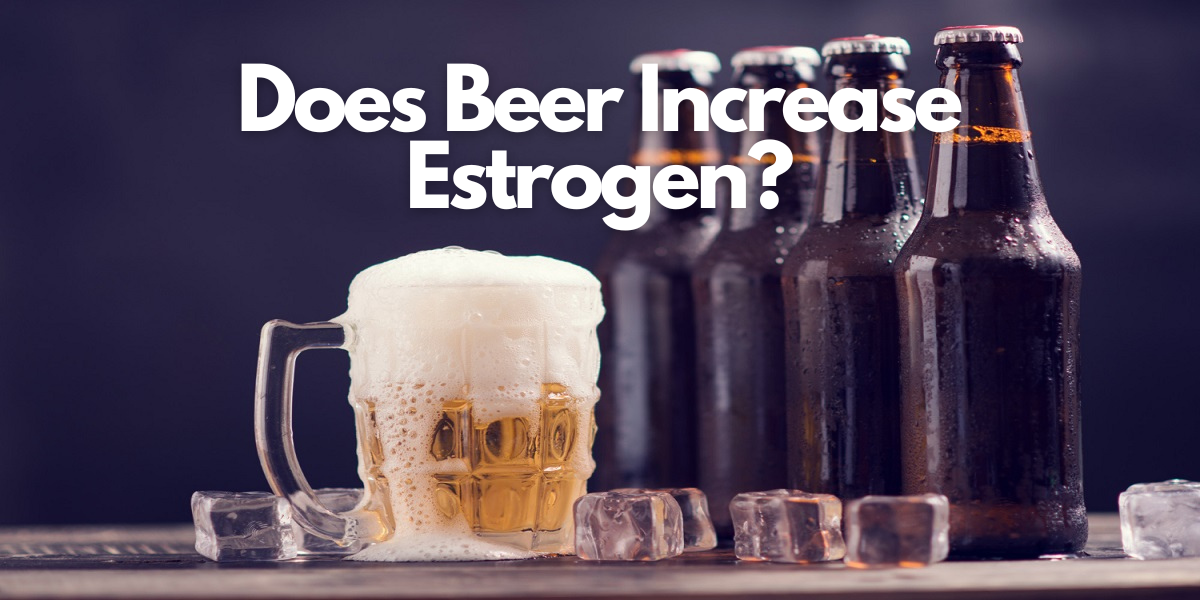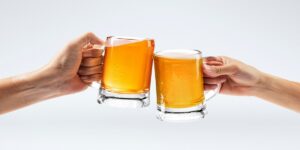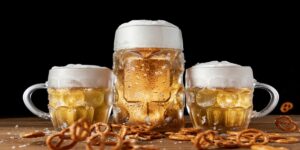Does Beer Increase Estrogen? : What Science Says?

If you are striving to improve your testosterone levels, it is important to make a conscious choice on your alcohol or beer intake aside from your diet and lifestyle.
Beer includes a plant-based chemical substance called phytoestrogen, which is said to emulate the function of estrogen (female hormone) in the body. This can be a cause of concern in males because it can potentially take a toll on the body and health, including testosterone production in men.
In this article, we have delved into the science behind beer influencing your testosterone production, whether it can actually increase estrogen levels in the body, and more. Take a look.
What’s In Alcohol
Whether it is beer, whiskey, or any other hard beverage, it is easy to understand that they have alcohol (ethanol) in them. But, aside from that, these beverages also contain some really impactful substances like phytoestrogens (estrogens sourced from plants) which have a bigger effect (both long and short term) on health. These substances are called congeners.
Phytoestrogens, as stated earlier, function similarly to actual estrogen. This basically means that when they go inside a male body, they can promote female characteristics like enlargement of breasts, reduced sperm quality, and male fertility among others. However, the amount of this compound that goes into your body likely plays an important role in determining its impact on the body, but the subject is still under exploration.
All that said, there is much research that supports the fact that the intake of beer can lead to an increase in estrogen in the body.
Scientific Studies And Evidence

A study from ‘The Journal of Biochemistry’ shows that consumption of beer can enhance estradiol (a kind of estrogen) presence in the body, and significantly obstruct the biosynthesis of dihydrotestosterone ( made from testosterone). This can contribute to the increase of feminine characteristics in men. It also correlated the drinking style (slow or fast) with hormonal imbalance.
In another research paper published by Dr. JS Gavalner, it was indicated that beer or other alcoholic beverages, whether they are made of rice, hops, or barley, contain plant estrogen. She further found out through her analysis that excess consumption of alcohol can lead to men developing characteristics as that of women such as breast development, female patterned pubic hair, etc.
There has been more science-backed data surrounding beer and phytoestrogens. One of the latest research findings identified the abundant presence of flavonoids which act as phytoestrogens substances in beer and hops.
Another study in 2021 concluded that beer has the most powerful phytoestrogen identified to date. One of the groups even found that even a moderate intake of beer can trigger lactation in mothers owing to raised estrogen levels, although further studies are needed to come to a firm conclusion on this.
There are many other clinical trials and studies posted in various journals which infer a direct association of beer with an increase in estrogen concentration in both men and women.
Relationship Between Beer, Body Weight, And Low Testosterone

Alcohol is always one of the top things most dietitians and fitness trainers ask you to give up when you are trying to shed extra pounds from your body. The reason is it adds unnecessary calories to your body without any nutritional benefits. (Click here to see the calorie information of different alcoholic beverages).
While occasional consumption of beer may not influence testosterone levels as much, moderate to excessive drinking of any alcohol, undeniably, has an adverse impact on our health as well as body mass. An increase in weight has a direct connection with reduced testosterone levels. This is because obesity can obstruct various crucial body processes like metabolism etc. which are responsible for testosterone production.
Conclusion
The bottom line is if you decide to drink beer or any other alcohol, it is always better to go with a limited amount so you do not consciously pose a risk to your testosterone health. The research studies that this article has listed majorly focus on the excessive intake of beer or sustained intake of alcoholic beverages. Not only can this lead to addiction, but also is a serious danger to testosterone production as it raises the estrogen levels in the blood.
That said, a few studies also indicate that moderate consumption of beer also has the potential to impact the hormone profile, although it depends on individual body functioning. In addition to that, it is important to understand that individual factors, like food and sleep habits, lifestyle, genes, and the environment you live in also play a critical role in the regulation of testosterone.
